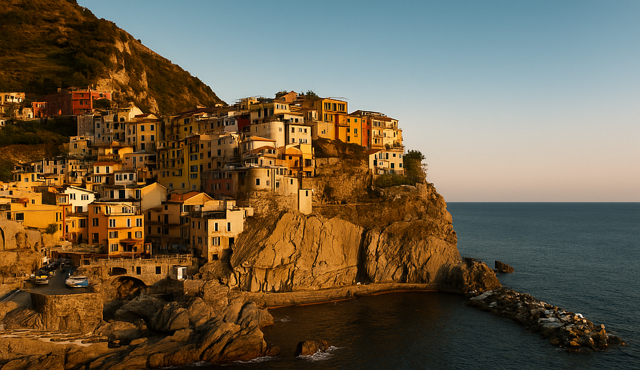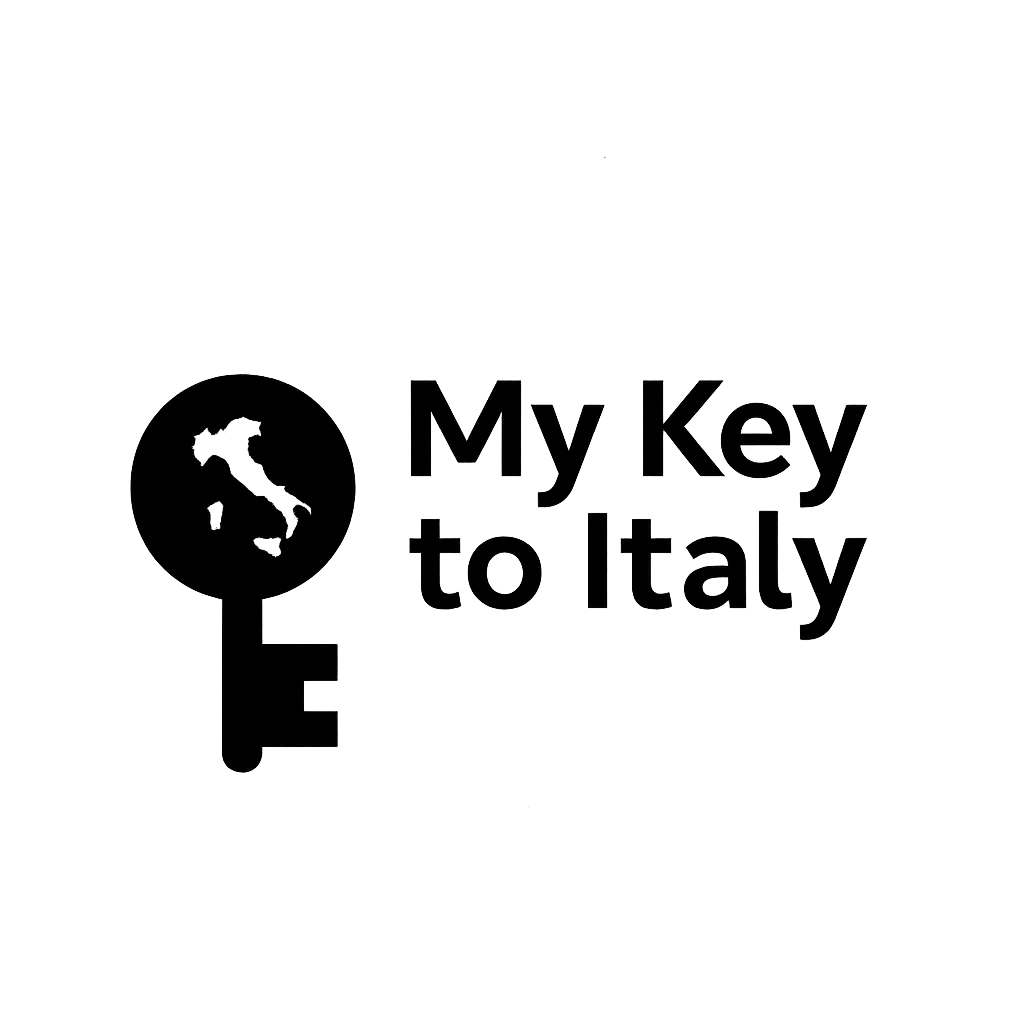
Owning a home in Italy is a dream for many Americans — from Tuscan farmhouses surrounded by vineyards to seaside apartments along the Amalfi Coast. But one of the most common questions is:
Can US citizens actually buy property in Italy? The answer is yes — and the process is more straightforward than many think.
In this guide, we’ll explain the legal rules, costs, taxes, and practical steps Americans need to know before buying a home in Italy.
Go to section:
- ✅Can Americans Legally Buy property in Italy?
- 🛂Visa & Residency Considerations
- 💰Costs & Taxes for American Buyers
- 📝Step-by-Step Buying Process
- 💳Get a Codice Fiscale (Italian Tax Code)
- ✍The Preliminary Contract ( Compromesso)
- 📄Transcription of the Preliminary Contract
- 📜The Final Deed ( Rogito )
- ⚖️Why international buyers should use buyer Representation service
- 📅📞Schedule a Call
✅Can Americans Legally Buy Property in Italy?
Yes! Americans can buy property in Italy without restrictions.
Italy has a reciprocity agreement with the US, which means American citizens enjoy the same property rights as Italians buying in the US. So in short:
No need for Italian residency to purchase.
Both residential and investment properties are allowed.
Properties can be bought under your personal name or via a company.
🛂 Visa & Residency Considerations
Buying a home in Italy does not automatically grant residency. However, owning property can help support visa applications. Options include:
Schengen Tourist Visa: allows up to 90 days in Italy (within 180 days).
You must apply at the embassy or consulate of the country that is your main destination, or the country of first entry if you have no main destination.
Elective Residency Visa: for retirees or those with sufficient income who want to live long-term.
Golden Visa alternatives: while Italy doesn’t have a classic “Golden Visa,” certain investment routes may apply.
💰 Costs & Taxes for American Buyers
When purchasing property in Italy, Americans should plan for these additional costs:
Purchase taxes: usually 2–9% of the property value (depending if it’s your first home or second).
Notary fees: approx. 1–2% of property value.
Legal fees & translations: highly recommended, especially for US buyers unfamiliar with Italian law.
Annual property taxes (IMU, TARI): vary by region and property type.
💡Pro Tip: If you buy as your primary residence, you may benefit from reduced taxes.
💡 budget consideration: for a property worth €200,000, you should budget roughly €10,000–€15,000 in additional costs (the costs mentioned above).
📝 Step-by-Step Buying Process
1. Hire a buyer’s agent :
This is the first thing you should do to protect your interests especially if you do not speak Italian. They help you avoid overpriced listings, miscommunication, and hidden issues. (Italian agents usually work for sellers).
2. Get a Codice Fiscale (Italian Tax Code):
Every American buyer must obtain a codice fiscale before purchasing property in Italy. This number is issued free of charge by the Italian Revenue Agency (Agenzia delle Entrate) and is essential for all legal and financial transactions. You can usually request it in Italy or through the Italian consulate in the US.
3. Search & shortlist properties :
Once your needs and budget are clear, shortlist properties by checking:
- Proximity to airports and transport
- City quality ( services, healthcare, safety,)
- Rental Potential if you plan to let the property
- Verified market prices ( many online listings are outdated or inflated)
4. Due diligence – check land registry, debts, and urban compliance.
This is the most important step. Your lawyer/architect should verify:
- Land Registry (Catasto): confirm ownership and boundaries
- Debts & Mortgages: make sure the property is free of liabilities
- Urban compliance: no illegal works or extensions that could block the sale
- Condominium checks: if it’s an apartment, review fees and past issues
- Energy/habitability certificates where required
☝️ Only after these checks it is safe to proceed to the following step
5. Make an offer & sign the compromesso (preliminary contract) – usually with a deposit (10–30%).
Once you’re satisfied with due diligence, you make an offer.
If accepted, both parties sign the Compromesso ( the preliminary contract).
✅ Standard Compromesso
Usually prepared and signed between buyer and seller (often with the help of a real estate agent or lawyer and can be done without a notary.
You’ll usually pay a deposit (10–30% of the property’s value ).
It must still be registered at the Agenzia delle Entrate (Italian tax office) within 20 days at a roughly fixed cost of 200 euros and this step usually is handled by the real estate agent.
📄✍Compromesso with Transcription (extra protection)
While not Mandatory, If you want the contract to be transcribed in the Land Registry, then a notary is required. How Transcription Protects the Buyer:
This is optional but strongly recommended especially if there will be a long gap between Compromesso ( the preliminary contract) and Rogito ( final deed), or if the amount of money at stake is large.
Again, you’ll usually pay a deposit (10–30% of the property’s value) plus the notary’s cost to transcribe the Compromesso
🔒 How Transcription Protects the Buyer
When the Compromesso is transcribed at the Land Registry (Conservatoria):
1. Blocks double sales → the seller cannot sell the same property to someone else.
2. Shields against debts → if the seller gets into debt after the Compromesso, new mortgages or seizures cannot affect you.
3. Guarantees your deposit → your rights are officially recorded, so even if the seller has financial/legal trouble, your deposit and agreement are protected.
4. Secures priority → your future Rogito (final deed) takes precedence over later claims.
In short:
☐ Without transcription: you’re only protected by the private contract and deposit rules.
☑ With transcription: you’re legally shielded in the public register → much stronger.
💰Cost to Transcribe the Compromesso
Notary fee for transcription: varies but usually €1,000 – €2,500 depending on complexity, property value, and the notary.
Registration tax: €200
Stamp duty: €16 every 4 pages
Cadastral tax: €200 (if applicable)
So, transcription adds an extra cost, but it’s a powerful protection.
6.📜 Rogito (Final Deed)
- The Rogito is the final contract, signed before an Italian Notary, who acts as a neutral state official ensuring the legality of the sale.
- If the buyer doesn’t speak Italian, a sworn translator must attend, or alternatively, the buyer can grant Power of Attorney to a trusted professional.
🔑On the Day of the Rogito:
- Payment of balance + taxes → the buyer pays the remaining purchase price, plus registration, cadastral, and mortgage taxes (or VAT if it’s a new build).
- Verification by the Notary → the notary re-checks ownership, ensures no hidden debts/mortgages, and confirms both parties are acting freely.
- Transfer of ownership → once the deed is read aloud and signed, the buyer officially becomes the new owner.
- Keys handed over 🗝→ the seller delivers the keys to the buyer.
- Immediate legal effect → the Notary registers the deed at the Land Registry (Conservatoria) so the new ownership is public and enforceable against third parties.
From this moment, you are the legal owner in Italy’s land registry — with full rights to occupy, rent, renovate, or resell the property.
💡Unlike in many countries, the Italian Notary is not just a witness — they are legally responsible for ensuring the contract is valid and enforceable. This gives foreign buyers a much stronger protection.
⚖️ Why international buyers should use buyer Representation service
Buying property in Italy can be exciting, but it’s also full of details, paperwork, and negotiations. For foreigners, the process can feel overwhelming — especially if you don’t speak Italian. That’s where a Buyer’s Representative makes all the difference:
- Less stress, fewer mistakes → we handle property checks, coordinate with notaries, lawyers, and architects, and make sure nothing is overlooked.
- Language barrier solved → no need to worry if you don’t speak Italian; we translate and explain everything in plain English.
- Save time and energy → instead of chasing agents, documents, and appointments, you can simply sit back and let us do the hard work for you.
- Confidence at every step → from the first property shortlist to the final deed, we ensure the process is safe, transparent, and smooth.
👉With buyer representation, your journey to owning a home in Italy is simpler, safer, and far less stressful.
➡️In conclusions:
Yes, Americans can absolutely buy property in Italy. With the right support, it can be a smooth and secure process — whether you’re looking for a retirement villa in Tuscany, a vacation home on the Amalfi Coast, or an investment property in a lively city.
👉 Thinking of buying in Italy? At My Key to Italy, we guide Americans through every step — from property search to notary signing — with full buyer-only representation.


Leave a Reply